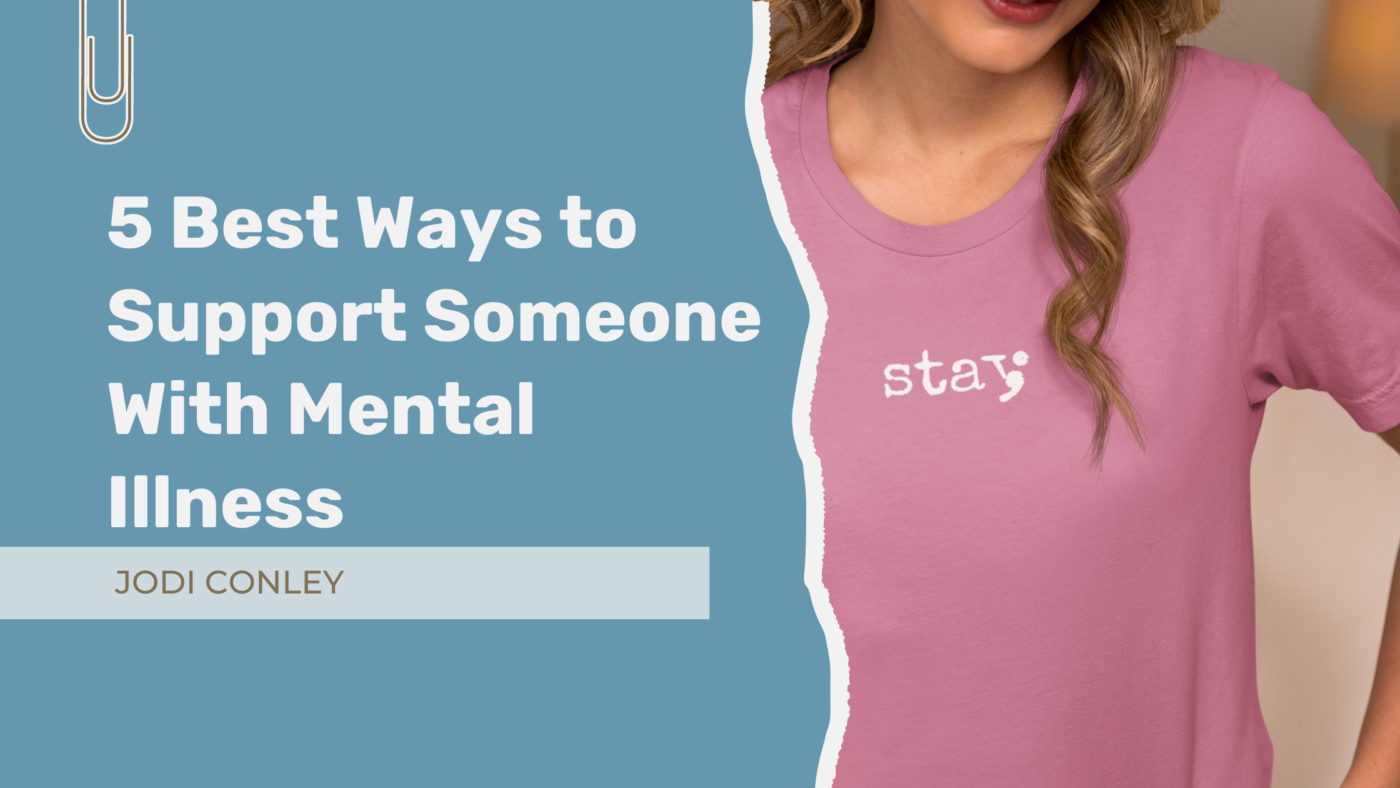Considering over 1/4 of all American adults battle mental illness, knowing how to support a loved one is crucial. Although we cannot take the struggle away, there are things we can do to support one another. Read more to find out the 5 best ways you can support a loved one affected by mental illness.
1. Learn About Mental Illness
Receiving a mental health diagnosis is often overwhelming for the person suffering. It can also be overwhelming for their loved ones. Parents, wives, husbands, siblings, and friends want to help, but often times they have no idea where to begin. The first step in helping should be learning about their mental illness. National Alliance on Mental Illness (NAMI) is a fantastic resource for learning about various mental health conditions. Understanding what your loved one is battling through enables you to be more informed, supportive, empathetic and active in helping.
2. Destigmatize Mental Health Conditions
Mental illness is no different than any other medical condition. Your loved one did not choose this, and they need to be met with understanding and compassion. Your loved one should not feel ashamed, and you can help with this by listening without judgement. Encouraging them to share and talk with you openly about their struggles lessens the shame and enables you to be a safe place to go when they are struggling.
3. Assist Your Loved One in Seeking Help
Everyone deserves access to highly trained therapy professionals. Often, seeking help feels overwhelming or pointless to someone in the thralls of mental illness. You can assist your loved one by locating help whether they are in a crisis or they are searching for long-term outpatient therapy at GoodTherapy.org. Insurance providers are often helpful with providing a list of approved providers. You can offer to set the appointment for your loved one or even attend their first session if they are struggling to do so alone, but also do not ever force or manipulate your loved one into seeking help unless in a crisis.
4. Be Mindful of Signs and Symptoms
Mental health issues can change a person’s perspective on the world. With this in mind, understand that you cannot argue to see things differently. You are not responsible for changing their feelings. If your loved one is feeling angry, sad, anxious, or suicidal, it is important to simply listen to them and not shame or make them feel guilty for feeling this way. Offer support and compassion, while encouraging them to seek the support of professionals who can help them manage their illness. Continue to remember that therapy will not work if the person is not ready to receive it, so forcing them into it through guilt will not be an effective means to get them help.
5. Build Upon Positives
Despite mental illness, many affected individuals continue to lead productive and fulfilling lives. Although there are periods where their mental illness may be controlled, it is important to remember mental illness can flare at any point. When this happens, it’s important to continue reflecting on the positives they continue to have. Maybe your loved one is battling depression and struggling to keep up with daily tasks. Recognize their efforts with the tasks they are continuing with and share genuine praise for their efforts. You can say something like, “I know it is hard for you to keep up with housework when you are feeling so down. I am really proud of you for pushing through.”
Be a Source of Support and Understanding with Mental Illness
Regardless of whether this diagnosis is new or long-standing, your loved one needs your support just as they would in a physical illness. Be sure your ear is always open to listen without judgement, support without demands, empathize without shaming, and help without expectations. Offer a hand whether it is a quick trip to the store, helping to catch up on housework, or aid in finding a therapist. By doing these things, you have shown your loved one that you care and will stand by them whenever their mental illness peaks.


Thank-you for helping people who may find themselves in the midst of going through this crisis. To know they are not alone & there is help and resources available without feeling shame. Things I wish I had known sooner. If it helps one person to reach out and get help either for themselves or a loved one, you have made a difference! And, for that, I am truly grateful for you and spreading the message…grace, always. Love always, Mom